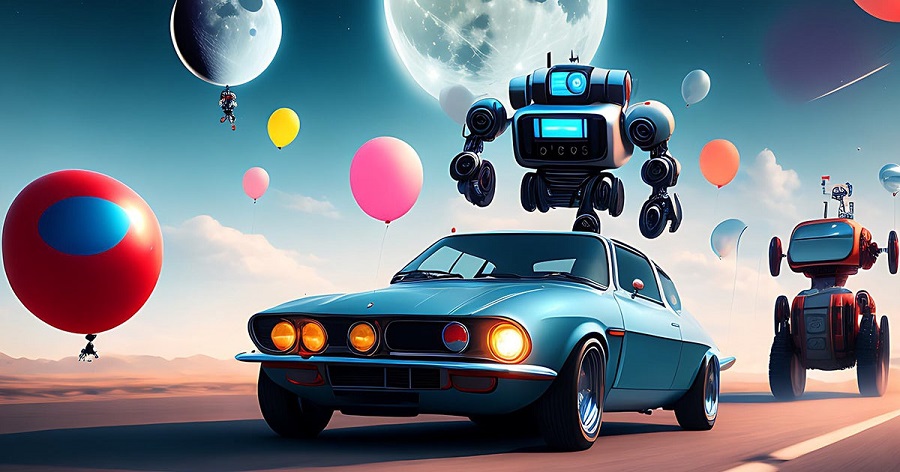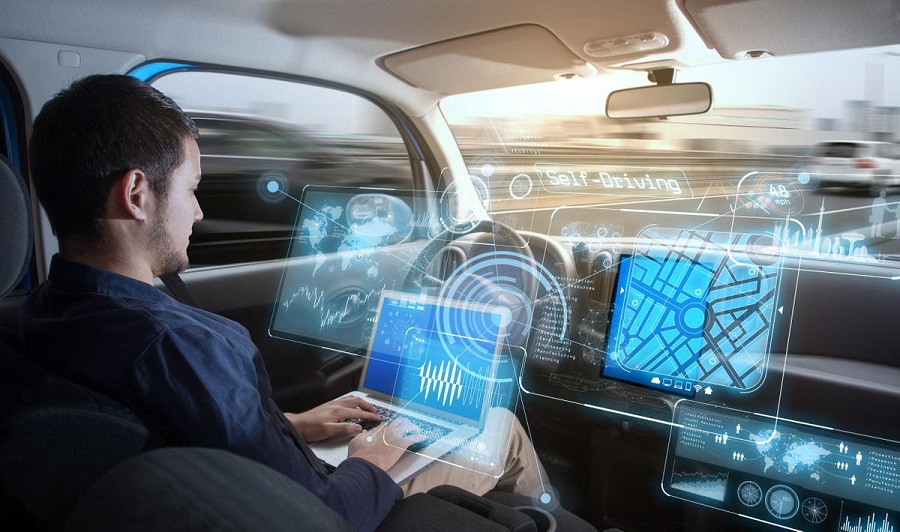
The Evolution of AI in Modern Vehicles: Steering the Future
The automotive industry, known for its relentless innovation, has entered an epoch where Artificial Intelligence (AI) is at the forefront. Vehicles, once simply a means of transport, are now evolving into intelligent machines, capable of understanding and interacting with the environment and their occupants.
This AI-driven transformation is not just enhancing the driving experience; it’s radically altering the way we perceive transportation. Cars of the future will be more than just vehicles; they will be partners, assistants, and guardians.
Driving Assistance & Safety
One of the primary introductions of AI in vehicles is Advanced Driver-Assistance Systems (ADAS). These systems leverage sensors, cameras, and AI algorithms to assist drivers, making roads safer and driving more comfortable.
From lane departure warnings, adaptive cruise control to automatic emergency braking, ADAS showcases the potential of AI in enhancing vehicle safety, promising a future with fewer road accidents.
AI-Powered Infotainment Systems
1. Voice Recognition
The modern infotainment systems come equipped with AI-driven voice recognition. Drivers can control music, navigation, and more using simple voice commands, ensuring minimal distraction.
2. Personalized Experience
Infotainment systems now learn from drivers’ habits, personalizing content, suggesting favorite routes, and even tuning into preferred radio stations, making every drive unique.
3. Augmented Reality
With augmented reality dashboards, AI superimposes navigation data, real-time updates, and more, directly onto the windshield, providing a seamless blend of the digital and real world.
4. In-Car Virtual Assistants
Just as Siri or Alexa have become household names, cars too now have their virtual assistants, ready to help with tasks or answer queries during a journey.
5. Driver Health Monitoring
Some infotainment systems, with integrated biometric sensors, can monitor the driver’s vital signs, ensuring they are in optimal condition to drive, and suggesting breaks when fatigue is detected.

Autonomous Driving: The Future Road
The dream of fully autonomous vehicles is gradually becoming a reality. From Tesla’s autopilot to Google’s Waymo, AI-driven cars are learning to navigate the world’s roads without human intervention.
Though challenges remain, the rapid advancements in machine learning and data processing capabilities are steadily pushing us closer to a world where cars drive themselves.
Environmental Impact and AI
AI is also contributing to making cars greener. Algorithms optimize fuel consumption, reduce emissions, and even guide electric vehicles to the nearest charging stations. As global focus shifts towards sustainability, AI’s role in environmentally-friendly transportation becomes pivotal.
Moreover, AI-driven simulations aid in designing cars that are more aerodynamic, efficient, and tailored to reduce their carbon footprint.
